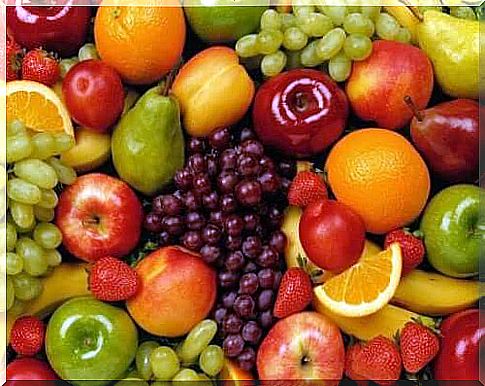How To Choose Carbohydrates Wisely?
Carbohydrates aren’t bad, but some can be healthier than others. Find out why carbohydrates are important for health and which ones we should choose.

Carbohydrate consumption usually gets a bad rap, especially when it comes to weight gain. However, not all carbohydrates are bad. Due to their many health benefits, they have taken an important place in the diet. This is because your body needs it to function properly.
However, consuming some carbohydrates is more desirable than others. In this article, you will learn more about them and how to choose them for your health.
Before we understand what a “good” carbohydrate is and why we should consume it without complexes in our daily diet, we need to know exactly what it is and how it behaves in our body.
Carbohydrate Information
Carbohydrates are a type of macronutrient found in many foods and drinks. Most of them are found in foods of plant origin, such as grains. The manufacturers of these foods also add carbohydrates in the form of starch or added sugar to processed foods.
Here are the common sources of naturally occurring carbohydrates:
- Fruits
- Vegetables
- Dried fruits
- Cereals
- Seeds
- Legumes
Types of carbohydrates
There are 3 main types of representative carbohydrates in our diet:
- Sugar: Sugar is the simplest form of carbohydrate and is found naturally in fruits, vegetables, milk and dairy products. Among them we find fructose (fruit sugar), sucrose (common sugar) and lactose (found in milk)
- Starch: This is a complex carbohydrate, which means that it is made up of many units of sugars. Starch is mainly found in products of plant origin. In addition, its concentration is even higher if the food is processed or cooked.
- Fiber: it is also a complex carbohydrate. We find it naturally in fruits and plant products like whole grains and seeds.
How Much Carbohydrate Do We Need?
According to a report from the World Health Organization, carbohydrates should meet most energy needs and account for between 55% and 75% of daily consumption. On the other hand, simple sugars should constitute less than 10%.
Therefore, if you are consuming 2000 calories daily, you should be ingesting between 900 and 1300 calories from carbohydrates. This translates to around 225 to 325 grams per day.
5 tips for smart carbohydrate consumption choices
The consumption of carbohydrates is fundamental for a healthy diet because they represent a very important energy source. However, not all carbohydrates are made the same.
So here’s how to properly incorporate healthy carbs into a balanced diet.
1. Consume more fruits and vegetables rich in fiber

Try to find whole, fresh, frozen, or canned fruits and vegetables with no added sugar. Other options are fruit juices and dried fruits. They are indeed a concentrated source of natural sugar, and therefore, they contain more calories.
In addition, whole fruits and vegetables also provide fiber and water, in addition to essential vitamins and minerals. All of this will help you feel fuller with fewer calories.
2. Choose whole grains
Whole grains are a better source of fiber and other important nutrients, such as B vitamins, compared to refined grains. This is because the latter undergo a process that removes certain parts of the grain, in addition to nutrients and fiber.
3. Consume low fat dairy products

Milk, cheese, yogurt, and other dairy products are great sources of calcium and protein, in addition to many other minerals and vitamins. Try to eat foods low in fat to limit calories and saturated fat. Also, be careful that dairy products do not contain added sugar.
4. Eat more legumes
Legumes, such as beans, peas and lentils, are among the most versatile and nutritious foods around. In general, they are low in fat and high in folate, potassium, iron and magnesium. In addition to the beneficial fats and fibers.
On the other hand, they are a good source of protein and can be a healthy substitute for meat that contains more saturated fat and cholesterol.
5. Limit the consumption of added sugar
The added sugar is probably not harmful in small amounts. However, consuming added sugar in the usual way has no beneficial effects on health. Healthy eating guidelines recommend limiting added sugar to less than 10% of daily calories.
Sweets, processed foods, and carbonated drinks are primarily the foods with the most added sugar. Therefore, it is necessary to reduce their consumption.
In summary, it is essential to choose the carbohydrates you eat. Also, limit added sugars and refined grains, such as soft drinks, desserts and sweets which are packed with calories but very low in nutrition. On the other hand, eat more fruits, vegetables and whole grains.









